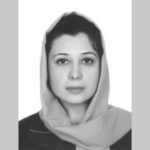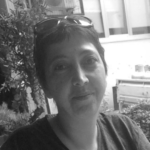Mastering the structure of a journal article is essential for researchers and scholars seeking to disseminate their work effectively. A well-organised article not only enhances readability but also ensures that the research is presented with clarity and coherence. In this guide, we will delve into the structural elements of a journal article, providing insights into the professional yet human approach to crafting a compelling scholarly narrative.
1. Title, Abstract and Keywords- Inviting Curiosity
The title serves as the gateway to your article, providing a concise glimpse into the essence of your research. Craft a title that is both informative and engaging, enticing readers to explore further. The abstract, a succinct summary of your entire article, acts as a roadmap, guiding readers through your objectives, methods, results, and conclusions. A well-crafted title and abstract set the stage for a compelling scholarly journey. Also, it is always good to remember that other researchers would decide whether to read the full text or not while reading your abstract. Additionally, you need to select 5-6 keywords for your research. These keywords need to be precise and related to your research as researchers search to find the right articles for their research with keywords. So, having the right keywords will enable them to find your article. If you want to learn more about writing an abstract, you might check “Writing an Abstract for a Research Paper“.
2. Introduction – Contextualising Your Research
The introduction is the foundation upon which the rest of your article is built. Provide context for your research by presenting a clear problem statement and a comprehensive literature review. Articulate the significance of your study and conclude the introduction with a focused research statement outlining the key objectives of your research. Engage readers from the outset, ensuring that they understand the importance of your scholarly contribution.
3. Literature Review
The literature review section is where you weave a scholarly tapestry, connecting your research to existing knowledge. Analyse relevant studies, identify gaps in the literature and demonstrate your understanding of the academic landscape. Maintain a balance between summarising existing work and highlighting the unique contributions your research brings to the field. A cohesive literature review sets the stage for the originality of your study. You might also read one of our previous blog posts “Literature Review in Research Methodology” for more information on literature review.
4. Methodology – Transparent Research Design
Transparency is key in the methodology section. Clearly articulate the methods employed in your study, allowing readers to understand how you collected and analysed data. Justify your chosen research design, address potential limitations, and ensure that your methodology is replicable. By presenting a transparent research process, you enhance the credibility of your findings.

5. Results – Presenting Objective Insights
The results section is where your research findings take centre stage. Present objective insights, utilising tables, figures, or graphs to enhance clarity. Report your results in a structured manner, avoiding interpretation at this stage. Let the data speak for itself, allowing readers to form their own conclusions. A well-presented results section lays the foundation for the subsequent discussion.
6. Discussion – Interpreting and Contextualising Findings
In the discussion section, delve into the interpretation and contextualisation of your findings. Relate your results to the existing literature, analyse patterns, and discuss the implications of your study. Address any limitations and provide suggestions for future research. Engage in a thoughtful dialogue, inviting readers to consider the broader significance of your contributions.
7. Conclusion – Key Takeaways
The conclusion synthesises the key takeaways from your research journey. Recapitulate your main findings, reiterating their significance in the context of your research question. Avoid introducing new information and instead focus on summarising the contributions of your study. Leave readers with a lasting impression, reinforcing the impact of your research on the academic discourse.
8. References – Acknowledging Scholarly Contributions
The references section is a testament to the scholarly foundation upon which your research is built. Cite all sources accurately and consistently, adhering to the guidelines of your chosen academic style. Acknowledge the contributions of others, reinforcing the interconnected nature of academic knowledge.
9. Acknowledgments – Recognising Support and Contributions
In the acknowledgements section, express gratitude for any support, guidance, or contributions received during the research process. This may include mentors, colleagues, funding agencies, or institutions that played a role in the development of your research. A gracious acknowledgement fosters a sense of scholarly community.
10. Appendices – Supplementing Your Narrative
If your research involves complex data sets, questionnaires, or supplementary material, include them in the appendices. Ensure that these additional materials enhance, rather than burden, the main narrative of your article. Provide clear references to the appendices in the body of your article for easy navigation.
The structure of a journal article is a carefully created collection of elements, each playing a crucial role in the overall narrative. By approaching each section with a professional yet human touch, researchers can craft articles that not only contribute meaningfully to their fields but also engage and captivate readers on a scholarly journey.
Sign in to continue
Not a member yet? Sign up now

Administrative Assistant
Deniz Bol is the Administrative Assistant at SPACE Studies, where she supports the day-to-day operations and contributes to the smooth functioning of the organization. Alongside her administrative role, Deniz is an artist with a passion for creative expression. She is currently pursuing her studies at the University of the Arts London (UAL), where she continues to develop her artistic practice. Her organizational skills, paired with her artistic background, make her a valuable asset to the SPACE Studies team, helping bridge the worlds of administration and creativity.
E-mail: denizbol@spacestudies.co.uk

Digital Marketing Consultant
Murat Oktay is the Digital Marketing Consultant at SPACE Studies, where he provides strategic guidance to enhance our digital presence and community engagement. With a keen eye for digital marketing trends and best practices, Murat plays a key role in refining our content strategy, expanding our online reach, and connecting with a wider audience. His expertise in digital tools and innovative marketing techniques aligns with SPACE Studies’ mission as a social enterprise, ensuring that our campaigns are impactful and resonate with our commitment to social responsibility in architecture and design. Outside his work with SPACE Studies, Murat stays at the forefront of digital marketing advancements, continually exploring new tools and sharing his insights with peers.
E-mail: muratoktay@spacestudies.co.uk

Marketing Manager
Santa Noella Matabaro is the Marketing Manager of SPACE Studies, bringing her expertise in strategic planning, community engagement, and relationship-building to the organization’s mission as a social enterprise. With a background in Politics & Law from the University of Kent, Santa combines analytical insights with a creative approach to advancing SPACE Studies’ vision of fostering interdisciplinary dialogue in architecture, design, and urban planning. In her role, she develops targeted campaigns and strategic partnerships, building brand presence and fostering meaningful connections with the community. Santa’s collaborative and people-centered approach enhances SPACE Studies’ impact, aligning with its commitment to social responsibility and innovation in the built environment.

Academic Content Coordinator
Betul Uckan is an architect and dedicated academic with a background in both architectural practice and research. She holds a Master of Science in Architectural Design and a Bachelor’s degree in Architecture from Istanbul Technical University, where she cultivated her interests in architectural theory and design. Betul has gained experience as a research assistant in various universities, contributing to design studios and foundational courses. She has also worked in the field as an architect with projects focused on design, modeling, and construction, and has been involved in notable projects, including Maltepe Piazza and Emaar Square in Istanbul. With her expertise spanning both digital and material architecture, Betul brings a dynamic, interdisciplinary approach to her role as the Academic Programme Coordinator.
E-mail: betuluckan@spacestudies.co.uk

Senior Researcher & Managing Editor
Arghavan Pournaderi is a senior researcher in the field of architectural conservation and restoration, with an academic foundation in architecture and specialized expertise in historic sites and buildings. Completing her PhD at the Art University of Isfahan, Iran, in 2019, her research has contributed to the understanding of Iran’s architectural heritage, with a focus on Isfahan’s urban and architectural evolution during the Safavid period. In addition to her extensive research, Dr. Pournaderi has held academic positions at various institutions in Isfahan, teaching at both undergraduate and graduate levels. Her work extends beyond academia as she contributes to SPACE Studies as Senior Researcher & Managing Editor, where she oversees scholarly initiatives that foster deeper interdisciplinary dialogue in architecture and heritage conservation.

Senior Researcher & Educational Consultant
Gregory Cowan is a Senior Researcher and Educational Consultant at SPACE Studies, where he leads initiatives that bridge academic research and practical application in architecture and urban design. He contributes his extensive experience to mentoring postgraduate students, designing educational workshops, and guiding community-focused projects. Gregory is also a freelance academic at the University of Wales Trinity St David and the University of Westminster, and founder of The Architects Coach. His expertise spans architectural workspace analysis, professional development, and positive intelligence coaching.
E-mail: gregorycowan@spacestudies.co.uk

Senior Researcher
Alison Hand is a Senior Researcher at SPACE Studies. She is a painter and writer with an MA in Painting from the Royal College of Art. Alison’s work focuses on creating absurd, unstable heterotopic spaces and dialogues with painting history. She is currently the Artist in Residence for King’s College London Philosophy Department on the Dreams and Wakeful Consciousness Research Project, exploring themes of time and simultaneity in new work. Alison has received numerous awards for her painting and is currently working with Bloomsbury Publishers on a major essay on Drawing in Contemporary Art. She is also the BA Fine Art Programme Leader at Art Academy London and co-director of Cement Arts. Her role at SPACE Studies involves leading research projects, mentoring junior researchers, and contributing to our artistic and academic initiatives.
E-mail: alisonhand@spacestudies.co.uk

Senior Researcher
Julian Wild is a Senior Researcher at SPACE Studies and the Sculpture Program Leader at The Art Academy London. With over 30 years of experience in creating and exhibiting sculptures, Julian has worked with high-profile clients such as Cate Blanchett and the University of Oxford. A fellow and former vice president (2015-2019) of the Royal Society of Sculptors, his work has been featured at venues like Modern Art Oxford and Chatsworth House. At SPACE Studies, Julian leads research projects, mentors junior team members, and conducts workshops that blend art and urban studies. In his free time, he enjoys attending academic conferences and crafting new sculptures.
E-mail: julianwild@spacestudies.co.uk

Director of Publications & Senior Researcher
Elif Suyuk Makakli (Associative Professor) earned her PhD in Architecture from the Vienna University of Technology, where she studied the impact of technology on architecture under Prof. William Alsop. With extensive experience in architectural practice in Istanbul and Vienna, she is now an Associate Professor at FMV Isik University, focusing on design education and technology. At SPACE Studies, Elif serves as both the Head of Publications and Senior Researcher, guiding scholarly content and contributing to research initiatives. She is dedicated to mentoring and fostering design innovation.
E-mail: elifsmakakli@spacestudies.co.uk

Director of Research
Sanaz Shobeiri is an architect, urban designer, and landscape urbanist, currently a postdoctoral researcher in the Department of Planning at Queen’s University Belfast. Her research focuses on age-gender inclusiveness and the interplay of architectural, historical, political, and sociocultural dimensions in urban spaces, exemplified by her project on city centres in Belfast and Tehran. Sanaz holds a PhD in Urban Planning from the University of Tehran and has a robust portfolio in sustainability and urban theory. As Head of Research at SPACE Studies, she leads innovative research initiatives, fostering collaboration and academic excellence. In her free time, Sanaz enjoys exploring urban landscapes and supporting community development.
E-mail: sanazshobeiri@spacestudies.co.uk

Creative Director
Selin Gulce Sozmen is the Creative Director at SPACE Studies, where she leads the artistic vision and design strategy for the organisation. With a background in graphic design and visual arts, Selin has been instrumental in creating visually captivating books, journals, and event posters. Her role extends to developing and coordinating workshops and creative projects, ensuring that all visual materials meet the highest standards of quality and innovation. Selin’s dedication to creativity and excellence drives the visual and creative direction of SPACE Studies, making her an essential part of the team.
E-mail: selinsozmen@spacestudies.co.uk

Founder & Executive Director
Pinar Engincan is the Founder and Executive Director of SPACE Studies, an innovative social enterprise focused on fostering interdisciplinary dialogue and education in architecture and urban design. With extensive experience as a lecturer and researcher, Pınar holds a PhD in Architecture and has led numerous academic initiatives. Her career includes curriculum development, international collaborations, and research on housing and urban policies. Passionate about bridging academia and community, she champions accessible education and consultancy services, empowering individuals to shape the built environment.
E-mail: pengincan@spacestudies.co.uk